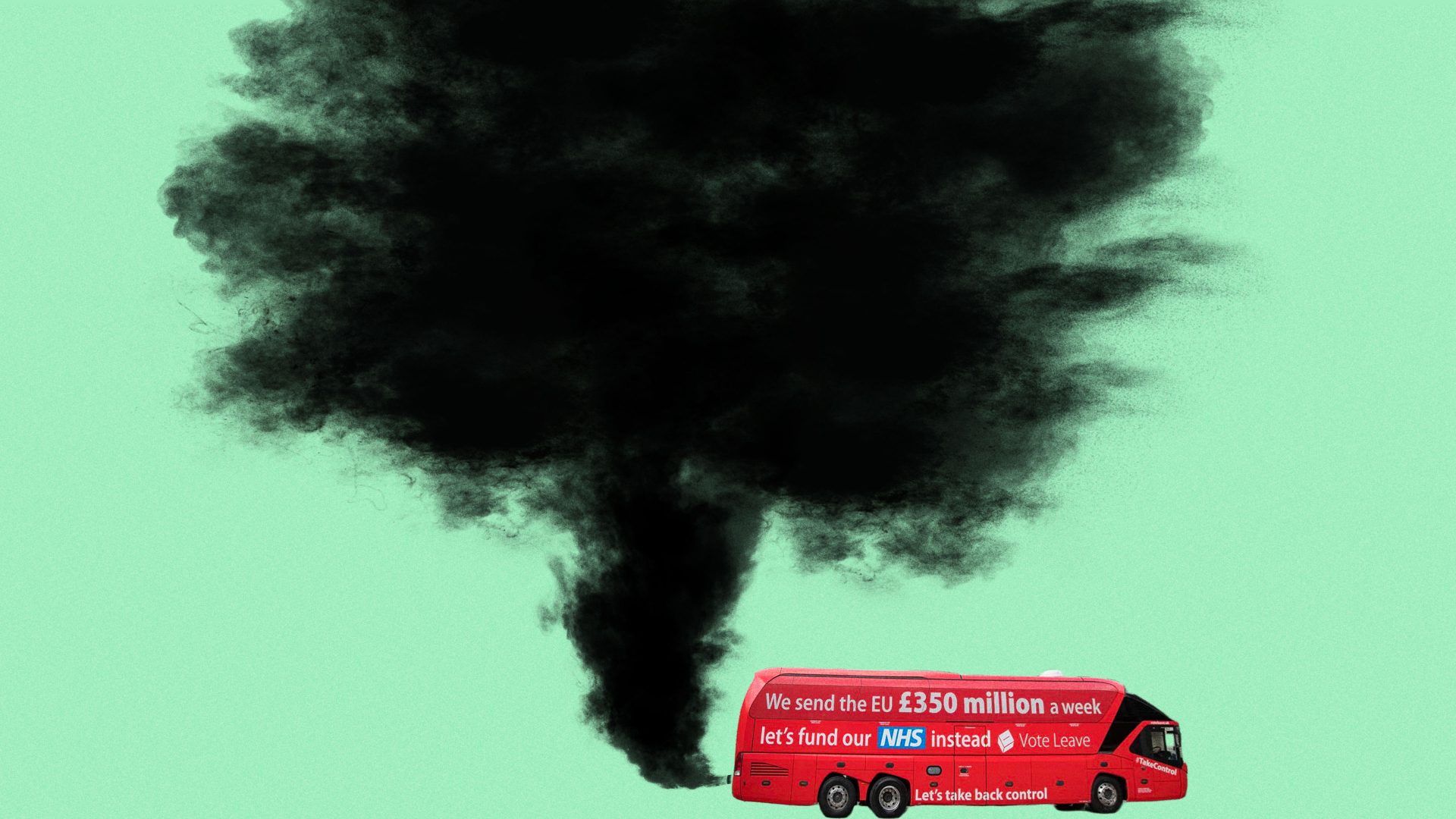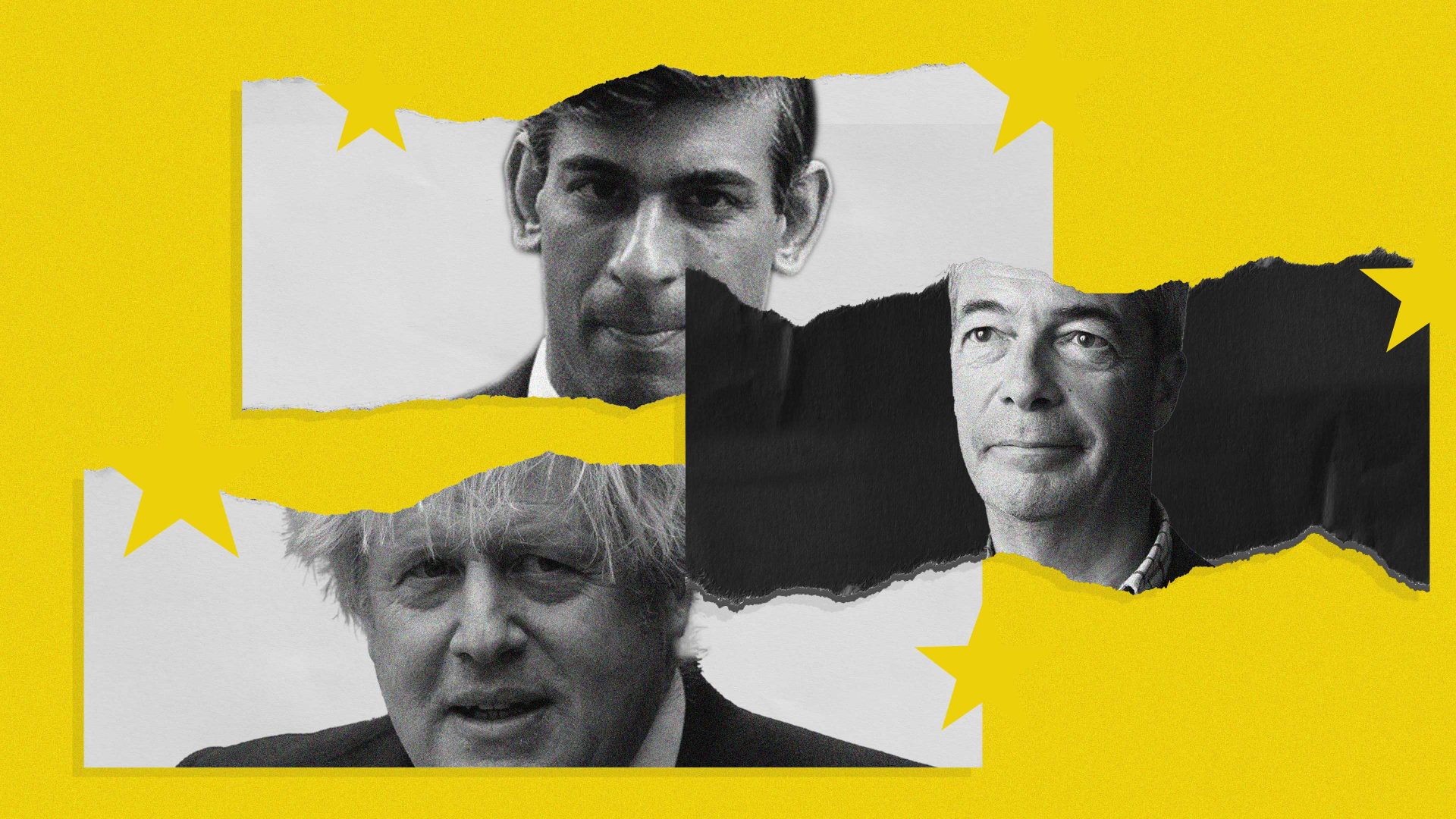When you have done all you can to wreck the nation, what do you do next? Answer: move on to wrecking the planet. It should really be no surprise that the gang that brought us Brexit has now turned its attention to sabotaging the UK’s chances of meeting its net zero target by 2050; for, politically, psychologically and strategically, the two projects are intimately connected. They are two sides of the same ugly coin.
In the four weeks since the Conservatives unexpectedly held on to Uxbridge and South Ruislip – albeit by the slender margin of 495 votes – Rishi Sunak has made quite clear that his enthusiasm for green policies is distinctly limited. Mindful of the role that opposition to Sadiq Khan’s extension of Ulez played in the by-election, he told the Sunday Telegraph that “I just want to make sure people know that I’m on their side in supporting them to use their cars to do all the things that matter to them”; unveiled a review of low traffic neighbourhoods (LTNs); and denounced Labour as “anti-motorist”.
On July 31, the PM announced a “maxing out” policy in the North Sea and 100-plus new drilling licences. Though HMG remains notionally committed to net zero, he declared that the target set by the 2015 Paris agreement should not “unnecessarily give people more hassle and more costs in their lives”.
All green measures, Sunak insists, will be “proportionate and pragmatic” – as though one can prevent a catastrophe in a proportionate and pragmatic way. Climate disaster is, in the famous framing of the great American psychiatrist Robert Jay Lifton, the “apocalyptic twin” of nuclear war. Yet the PM speaks of net zero as if it were merely one public policy among many – and by no means the most important.
Just as he backed Brexit in 2016 on predominantly economic grounds, claiming that the UK’s departure from the EU would liberate British business from Brussels bureaucracy, so Sunak is instinctively suspicious of green commitments as yet another regulatory imposition upon the free market by the state. In this, he is following the example of his role model and predecessor as chancellor, the late Nigel Lawson, who was chair of the Vote Leave campaign and of the Global Warming Policy Foundation that opposes what Lawson called “the new religion of eco-fundamentalism”.
Not all Brexiteers, it is true, are climate sceptics: in June, Zac Goldsmith resigned from the government in protest at its “apathy in the face of the greatest challenge we have faced” and the extent to which “this existential challenge leaves you [Sunak] personally unmoved”. Last week, the Conservative peer said that he could be “very tempted” to back Labour on climate policy.
In general, however, those Tories who pursued Brexit most vigorously are also those now challenging net zero measures. There is a striking membership overlap between the longstanding parliamentary “European Research Group” and the newer “Net Zero Scrutiny Group”, chaired by Craig Mackinlay MP and co-founded by his fellow pro-Brexit “Spartan”, Steve Baker.
Last month, Lord Frost, the former chief Brexit negotiator, claimed, extraordinarily, that rising global temperatures are “likely to be beneficial” to the UK. Though an insult to the public’s intelligence, his remark also demonstrated the cultural affinity for this cohort of Conservatives between Brexitism and climate scepticism.
Both ideologies involve a shocking indifference to evidence and data. They reflect a bulldog belief that Britain will always be better off pursuing its own path, rather than engaging with supranational negotiations and institutions. They share a distaste for “experts” – economists in the case of Brexit, the world’s scientists in the case of climate change. In many instances, Brexiteers and ecosceptics express the same paranoid suspicion of “global elites” and “globalist conspiracies”.
Note that almost nobody expresses open hostility to the core project of emissions reduction and the achievement of net zero – at some point. At present, the argument is about the speed and cost to the public of the measures that are necessary if the UK is to stand a chance of meeting its commitments. Priti Patel has insisted that the government pause all its climate targets, while Jacob Rees-Mogg has renewed his attack on the pledge to stop new cars that run on petrol being sold after 2030.
Remember: Brexit did not start with outright demands for the UK to leave the EU but a steady chipping away of public confidence in Brussels and its treatment of Britain. A similarly incremental strategy is being adopted to kill off net zero: step by step, stage by stage.
And once again, Nigel Farage is the key figure, moving further and faster than most Conservative MPs are prepared to go for now. In March 2022, he launched his new anti-net zero campaign, Britain Means Business, arguing that “by taking Britain down its ruinous path, the political class in Westminster has made a decision on behalf of the rest of us without any public debate being held… The same high-minded principles that pertained to Britain’s membership of the EU apply to net zero”. Farage is demanding a referendum on the emissions target, and some polls suggest that the public – though still broadly supportive of net zero – is attracted by the idea of another such public vote. It is all horribly familiar.
At this point, the objective is to undermine the public and political consensus on climate change, to sow the seeds of doubt and to create political division. This is the classic disruptive playbook, first devised by the tobacco industry and now the basis of most populist politics. And, already, it has put the frighteners on Sir Keir Starmer, who panicked in the wake of the Uxbridge by-election and has significantly toned down Labour’s commitment to environmental measures.
For those who want to thwart the UK’s climate commitments, it has been a good month’s work. You might think that Brexit would be more than enough for any political generation.
It turns out only to be the start.




